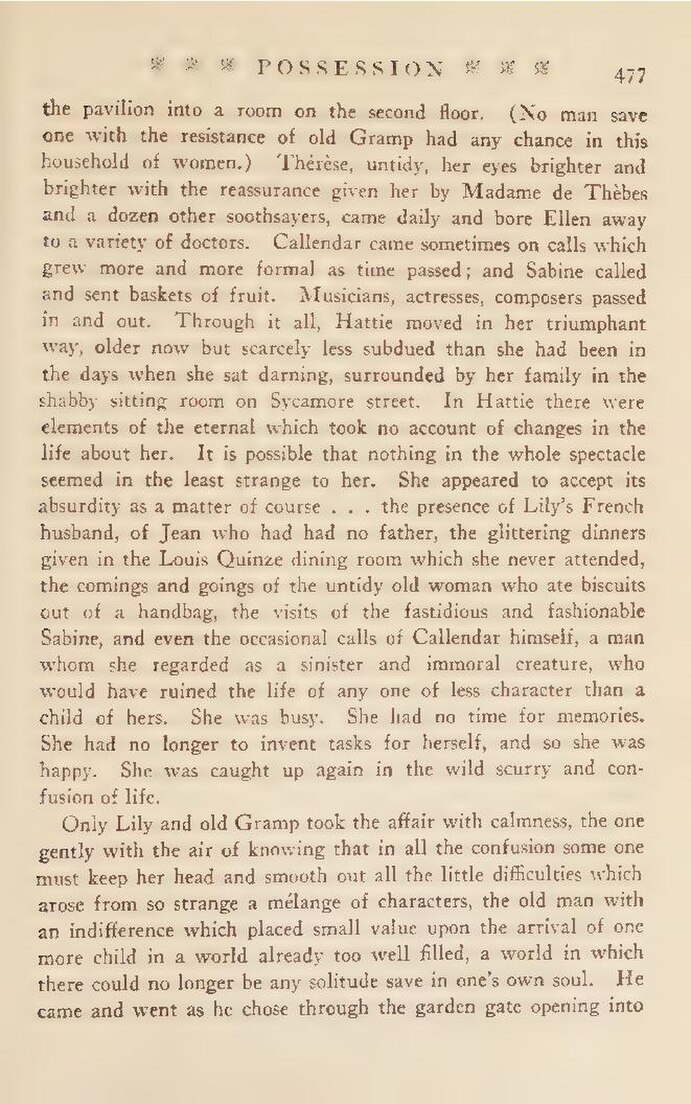the pavilion into a room on the second floor. (No man save one with the resistance of old Gramp had any chance in this household of women.) Thérèse, untidy, her eyes brighter and brighter with the reassurance given her by Madame de Thèbes and a dozen other soothsayers, came daily and bore Ellen away to a variety of doctors. Callendar came sometimes on calls which grew more and more formal as time passed; and Sabine called and sent baskets of fruit. Musicians, actresses, composers passed in and out. Through it all, Hattie moved in her triumphant way, older now but scarcely less subdued than she had been in the days when she sat darning, surrounded by her family in the shabby sitting room on Sycamore street. In Hattie there were elements of the eternal which took no account of changes in the life about her. It is possible that nothing in the whole spectacle seemed in the least strange to her. She appeared to accept its absurdity as a matter of course . . . the presence of Lily's French husband, of Jean who had had no father, the glittering dinners given in the Louis Quinze dining room which she never attended, the comings and goings of the untidy old woman who ate biscuits out of a handbag, the visits of the fastidious and fashionable Sabine, and even the occasional calls of Callendar himself, a man whom she regarded as a sinister and immoral creature, who would have ruined the life of any one of less character than a child of hers. She was busy. She had no time for memories. She had no longer to invent tasks for herself, and so she was happy. She was caught up again in the wild scurry and confusion of life.
Only Lily and old Gramp took the affair with calmness, the one gently with the air of knowing that in all the confusion some one must keep her head and smooth out all the little difficulties which arose from so strange a mélange of characters, the old man with an indifference which placed small value upon the arrival of one more child in a world already too well filled, a world in which there could no longer be any solitude save in one's own soul. He came and went as he chose through the garden gate opening into
